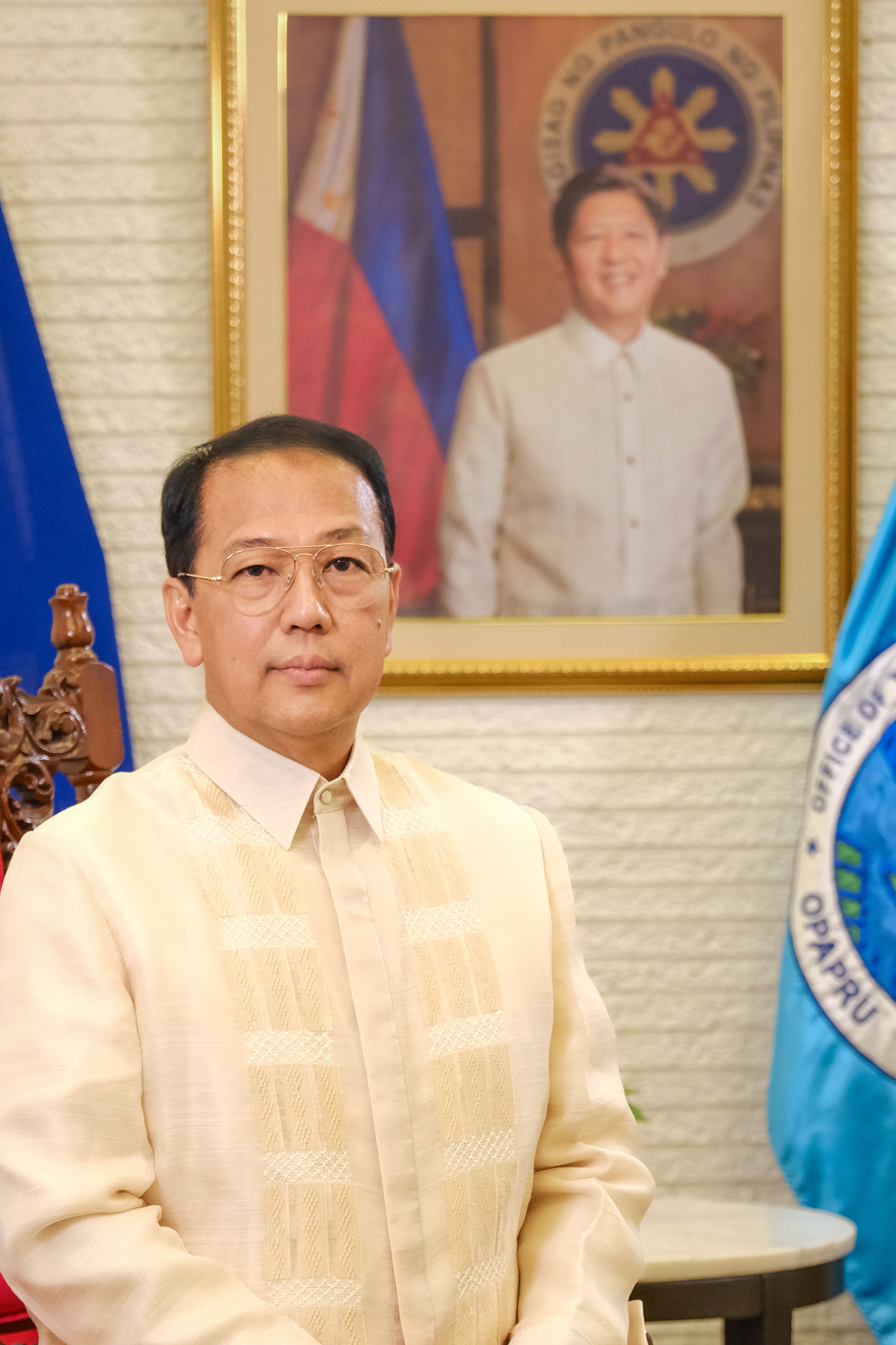
I have not said much about the subject of WPS.
There were a few occasions when the circumstances called for it, but I otherwise kept it out of the discussions.
Our strategies and action plans have been attracting a lot of international attention lately. We received several dignitaries from Europe, Asia, and the Americas in the first half of the year who showed great interest in our activities – all of them signified their unequivocal support to WPS activities. They figured that the Philippines has the momentum in pursuing its WPS objectives.
DBM Secretary Amenah F. Pangandaman was the first to make it public. On March 11, 2024, in New York, she made an announcement during the Welcome Reception for Heads of Delegations of the 68th Session of the Commission on the Status of Women. Sec. Pangandaman was Head of the Philippine Delegation and she also hosted the reception.
Ten days later, in Quezon City, DFA Secretary Enrique A. Manalo made the same announcement when he delivered his message as guest of honor and speaker at a conference at a Women’s Month Event held in Miriam College.
I take this turn to pitch our hosting of the first-ever ministerial-level international conference of its kind.
The Department of Foreign Affairs (DFA), the Office of the Presidential Adviser on Peace, Reconciliation and Unity (OPAPRU), the Philippine Commission on Women (PCW), and the Philippine Center for Islam and Democracy (PCID) have been working together to organize and stage the International Conference on Women, Peace and Security (WPS) since January this year. The UN Women and the ASEAN Institute for Peace and Reconciliation (IPR) have also joined. We are reaching out to other national government agencies for their support and participation as we write this piece.
The Philippines will host the three-day conference on Oct. 28-30, 2024. The conference aims to “carve pathways and develop collaborative strategies and serve as an international stocktaking on the implementation of the women, peace, and security (WPS) agenda ahead of the 25th anniversary of UN Security Council Resolution 1325 (UNSCR 1325).”
What is WPS? ‘WPS is a policy framework that recognizes that women must be critical actors in all efforts to achieve sustainable international peace and security. [United States Institute of Peace]’ It evolved from United Nations Security Council Resolution 1325, a resolution adopted on Oct. 31, 2000. UNSCR 1325 focuses on two issues – ‘the inordinate impact of violent conflict and war on women and girls, as well as the crucial role that women should, and already do play in conflict prevention and peacebuilding.’
A review of the literature provides numerous findings to support the premises and principles of the policy:
From the background paper for the UN-World Bank Flagship Study, “Pathways for Peace: Inclusive Approaches to Preventing Violent Conflict”:
- The more gender equal the state is, the more likely conflict will be resolved without violence.
- The more gender equal the state is, the less likely it is to use military force to resolve international disputes.
- The more gender equal the state is, the more likely grievances will be prevented from escalating into violent conflict.
- The more gender equal the state is, the severity of violence used in international conflicts decreases.
From the Council on Foreign Relations: Women’s Participation in Peace Processes:
- The presence of women in positions of leadership can greatly reduce the likelihood of violent conflict emerging as well as the prospects for the peaceful resolution of existing conflicts.
From the book Sex and World Peace:
- The best predictor of a state’s stability is how its women are treated.
- There is a strong and highly significant link between state security and women’s security.
- The very best predictor of a state’s peacefulness is not the level of wealth, its level of democracy, or its ethno-religious identity, the very best predictor of a state’s peacefulness is how well its women are treated.
- Democracies with higher levels of violence against women are as insecure and unstable as non-democracies.
In 2010, the Philippines, through a collaborative effort between government and civil society, became the first Asian country to launch a National Action Plan (NAP) for implementing UN Security Council Resolutions 1325. Our National Action Plan on WPS or NAPWPS is currently on the 4th generation or iteration. Only five other countries of the 108 UN Member States (56 percent of total) are on their fourth and two countries on their fifth.
The story of Madam Miriam Coronel-Ferrer provides a wonderful context to the country’s adoption of the WPS policy. She led the Philippine government in peace negotiations with the MILF, and was the first and remains the only-female chief negotiator in history to sign a major peace accord. Women made up 22 percent of the negotiators, with two of the four government negotiators being women. Additionally, women accounted for 27 percent of the total signatories to the final agreement, served as advisors on both the government and MILF, and led the Office of the Presidential Adviser on Peace Process (OPAPP, now OPAPRU), which oversaw the peace process. Women’s civil society groups also contributed recommendations to the Track 1 process, drawing from information gathered and consensus opinions formed during their parallel nongovernmental talks.
We will share the Philippines’ NAPWPS journey in the next installment in this column.
We will also talk about several women who prominently represented the Filipinas in the quest for peace. Their respective narratives serve both as inspiration and empirical evidence for WPS.
(Secretary Carlito G. Galvez, Jr., is the presidential adviser on peace, reconciliation and unity. He advises the President on the implementation of the Philippine Comprehensive Peace Process.)